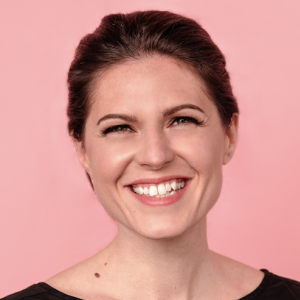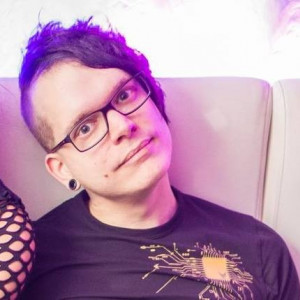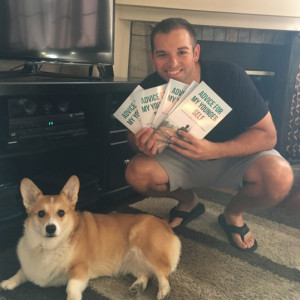How did you get started with remote work?
Interview with Alaina, a nonprofit program state director
The last company I worked for was my first remote work job, and it was an adjustment when I first started. It took months to find my rhythm, my biggest hurdle was waking up early enough to complete a full day's work and not working through the evening.
I'm currently the Georgia state director with Spread The Vote, and it's a full-time job. I help manage the nine chapters and dozens of volunteers who are helping Georgia residents get their IDs to live their lives and to show at the polls to vote on election day.
I like to say that my office is the entire state of Georgia. One day I can be home in Atlanta and the next, I’m driving an hour to Macon or further to cities like Savannah or Athens.
It takes a minute to find your rhythm in a new remote position—hear how Alaina organizes her time to hit the ground running in a new remote work job.
Read full interview from Interview with Alaina, a nonprofit program state director.
Company Interview with Devin, CEO of Animalz
Being a remote company is about more than just location. It’s a lifestyle and culture choice.
You need to implement supportive policies that help your team thrive in the environment you choose.
How do you keep remote teams motivated? Devin, CEO of Animalz, shares her tips for how leaders can avoid demotivation and her hopes for the future of remote work.
Read full interview from Company Interview with Devin, CEO of Animalz.
Interview with Michelle, an organizer of digital nomad experiences
About two years a year ago, I started traveling as a 30-year old solo backpacker in Australia. Before that time, I had lived for five years in South America, traveled a bit here and there all over the world, but never left for a year on my own without a plan.
I started looking for a job in a local Facebook group and saw an ad for a road trip, 39 days through the outback, something I had for a long time on my bucket list! With super jet lag, I picked up the phone and negotiated myself in a job on that trip: I could be the tour manager!
I got paid and could travel, how cool was that! Soon I found out that only traveling was not satisfying for me. Even though I was the tour manager and had some responsibilities, I was surrounded by mostly young backpackers, some with great stories and deep souls; others never left home before.
I missed the depth, people to connect with, and talk about ideas and visions about life.
Then I met Andreas, my colleague, and cameraman of the business we worked for. We could talk for hours about the same interests, and his head was constantly producing new ideas. I liked this. Sitting around the campfire, discussing business ideas, talking about life, really connecting.
Andreas and I ended up traveling over 20.000 km together as a team for this business, finding out how our skills and passions were the perfect match. At the same time, I started to look into learning digital marketing skills, finding out that this is the way to make money while being on the road.
With Andreas being the greatest videographer when it comes to travel and tourism, our idea started to develop to create the ultimate trips for people like us. And to capture everything on camera.
A solo backpacking trip led to Michelle organizing co-travel experiences for digital nomads—hear how she manages working while traveling.
Read full interview from Interview with Michelle, an organizer of digital nomad experiences.
Interview with Taylor, a marketing director and intentional digital nomad
In 2015, I had just gone through a painful breakup. The kind of breakup that makes you take a step back and re-think your entire life, not only your love life because you suddenly feel like you're flailing.
In the process of trying to heal, I buried myself in my job... only to realize that I hated everything about it.
I hated the freneticism, the rigidity of office life, the monotony, the feeling like I was wasting my youth on a job that wouldn't love me back.
I'd always associated remote work with menial "telecommuting" jobs until I read an article about digital nomadism featuring people with careers I genuinely admired.
I hadn't realized that I could travel without taking a career break or a de facto demotion. It all clicked for me. That's what I wanted!
I wanted to live on my terms and integrate travel into my life via a remote career and location independence. I started applying for remote jobs that week, gave notice, and landed at my current employer, Tortuga.
The switch was pretty seamless for me logistically. I'm a self-starter by nature and a fiercely independent person, so I found it relatively natural to build my routine around work.
Taylor shares how co-working spaces, digital nomadism, and work flexibility gave her the work environment she always wanted.
Read full interview from Interview with Taylor, a marketing director and intentional digital nomad.
Interview with Kay, an independent software consultant who found freedom in remote work
I worked as a employee for about 7 years at a small software company. After a big project with much overtime, I asked what the manager what he had in mind for me in terms of career growth. He wanted to make me his replacement for head of R&D, but the rest of the management team was against it. They said, a manager can't get to work at 11am, after all the other employees, haha.
In hindsight they were right, I wasn't made for the management job, but I was pretty salty and quit. I did a sabbatical in 2014 and tried to find out what I really wanted, since it wasn't working from 9-5 in some job without future and I had the feeling most jobs were about this. In 2015 I started interviewing again, this time with the goal in mind to get a remote job, because if I had to work 9-5 in a futureless job, at least it should be as comfortable as possible.
I also had the impression that my schedule was already pretty full with my private life. I already played guitar, learned bass in 2014, started swimming and biking and after I started living in non-monogamous relationships I had two girlfriends. So sitting in an office for 40h a week with potentially 10h extra commute every week wasn't an option anymore.
Took half a year until I got a job as a developer at a startup in Frankfurt, Germany, which is about 300km away from me. They let me work from home, but as a freelancer. They said they would employ me regularly if they get their investment, which they got a year later, but the terms for the employment weren't what I had in mind.
But this was a good thing, because the terms which I didn't approve of, showed me what I really wanted.
I didn't just want to work from home, I wanted freedom.
I wanted to decide that I will work for like 6-8 month in a year and still have enough money to have a good time in the remaining 4-6. I wanted the option to walk away in a matter of weeks or even days if I didn't like how a company behaved, I wanted to seize opportunities I would have to ask my employer for if I wasn't a freelancer.
And so I kept working for this startup until their investor forbade them to hire me, because I was too expensive, lol.
In 2017 then I went on to do the full self-employment thing. Find multiple projects, do them for a few months, learn many new things and move on to the next. While the process of finding these projects (interesting + remote) isn't that easy, I feel much better than ever before in my life.
Learn how Kay made the jump from full-time employee to full-time remote consultant
Read full interview from Interview with Kay, an independent software consultant who found freedom in remote work.
Interview with Pilar, director of Virtual Not Distant
I first started working online about eight years ago, because I was looking for work in leadership training. I was doing training for managers and facilitating away days for organizations, and I was based in London. However, I met my husband in Amsterdam. And also, my father became chronically ill in Spain.
So, I needed to go there for long periods of time, and I needed something to do online.
I found a job online, animating a forum for people who were taking an accredited course on management and leadership. So, that's how I started.
I was doing the forum, then I was offered work running the webinars, and I found I really enjoyed it. I also noticed that my blog posts that were from my then blog Virtual Not Distant (now a company), that covered topics about running remote teams and managing remote teams and virtual teams were getting a lot of attention.
In contrast, the stuff I was writing on ordinary leadership and management were not getting that much engagement. So, that's why I started to go in that direction.
Hear about Pilar's flexible approach to managing Virtual Not Distant and the career-changing advice she received from a friend.
Read full interview from Interview with Pilar, director of Virtual Not Distant .
Interview with Michael about being an entrepreneur and freelancer
I got started with remote work because I was tired of the 9-5 grind. I had a high paying job, but I was miserable. I hated having a boss, working on stuff that didn't interest me and having a schedule.
I wanted to create an online brand, but knew it took time to grow/monetize a website so freelance writing helped in the interim. Last week was my one year anniversary.
I quit my six-figure job with absolutely ZERO money coming in, I made $60 from my blog when I left corporate America. I saved over 12 months of living expenses in a separate account and forced myself to figure it out.
Freelancing was much harder than I anticipated in the beginning.
At the time I left I also just published my first book, Advice for My Younger Self. This added a new income stream along with my blog and random side hustles. It took some time guest posting, learning new skills, and building a portfolio to get recurring clients on projects that I enjoyed working on.
If I'm not building my blog and freelancing business I'm working on my golf game as I'm turning professional in the next six months.
Michael is an online entrepreneur, author, and freelance writer who specializes in self-improvement and personal finance.
Read full interview from Interview with Michael about being an entrepreneur and freelancer.
Interview with Nico, marketer and advocate for remote worker mental health
I started working remotely full-time about a year ago, although my remote work advocacy began before that.
I remember reading tons of content about the benefits of remote work back in 2015/2016 and thinking, "I want that freedom, I want that flexibility."
"I've felt burnout HARD in the past. When it hits, it HITS, and it can be tough to recover." In this interview, Nico shares his strategies for balancing work and life and reveals the key to avoiding burnout.
Read full interview from Interview with Nico, marketer and advocate for remote worker mental health.
Interview with Chloe, a customer support freelancer and multi-project expert
I initially discovered working remotely about four years ago. I used to manage retail stores and began looking at remote work as a way to supplement income on the days I was off or had a bit of extra time.
The transition was slow at the beginning; I did odd jobs to gain positive feedback and a bit of a platform presence. Personally, it wasn’t difficult for me, after working for almost ten years in retail, I was ready to try something different but still be able to work in the service industry.
Chloe uses the flexibility of freelancing to her advantage—see how she successfully manages multiple projects at one time.
Read full interview from Interview with Chloe, a customer support freelancer and multi-project expert.
Interview with Andrew, a freelance writer who works remotely
Funnily enough, I never intended to freelance remotely full-time. At first, I had found the website Upwork, where you could apply for writing jobs that clients were looking for writers. Thinking it would be a good way to get some side cash here and there, I put in for a few jobs.
Upwork has a simple enough system to apply for jobs, making it easy to apply for a bunch of work at once. Since I had no experience and no ratings, I figured I’d put in for a lot of different jobs, throwing the net wide in the hopes of getting one or two bites.
Much to my surprise, I had multiple clients reply to me fairly quickly.
I was working a delivery job at the time and so had some downtime to the point where I could do both jobs, I’d deliver food and while waiting for another delivery to come in, I’d write.
Then, within a month, I was hit with so many clients that I’d actually be losing money if I didn’t quit my day job.
It happened so quickly that I said to myself “okay, I’ll just take a break from delivery work and see how this goes.” I never went back to working full time anywhere else.
One of the cool things behind Upwork was that not only could you easily find clients, but clients could also find you, inviting you to apply for their jobs. This meant that the more success you had on their platform, the higher chances you’d have of getting invited to various new jobs. This made transitioning to working for myself far easier than I would have anticipated.
Switching from working full-time on a set schedule to working on my own schedule wasn’t particularly challenging for me. Before I started freelance writing, I spent my free time writing various different books and stories, so I had the discipline developed to just sit down and write. Perhaps the biggest challenge was learning how to write to please a client.
I enjoyed the change immensely. Going from always having to follow a bunch of company policies, rules and regulations to being able to just kick back and work at my own pace was a pleasant transition. I still enjoy working remotely today. So fewer headaches and you save a bunch on gas, which is a real plus!
Andrew became a full-time freelance writer after experimenting with freelance marketplaces. After the first month, he was already earning more than his full-time job.
Read full interview from Interview with Andrew, a freelance writer who works remotely.







